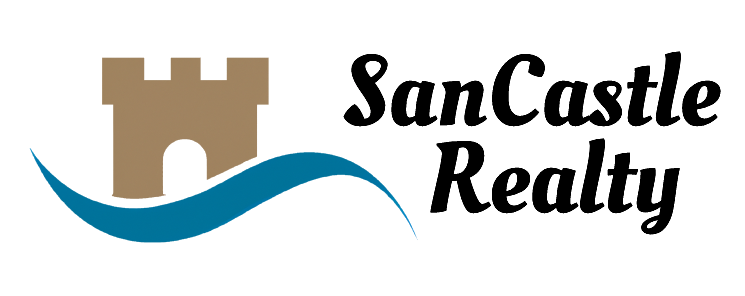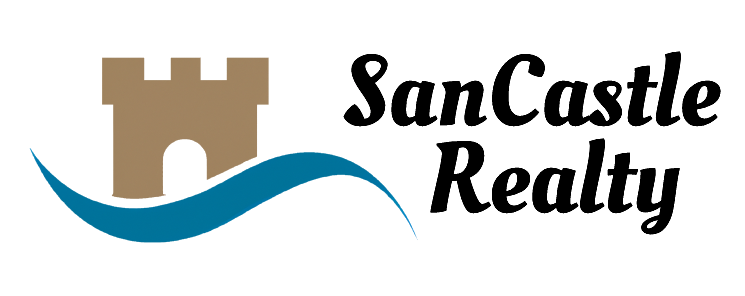sancastle realty's Blog
Our Blog Articles

How Much House Can You Afford as a First-Time Buyer? 7 Key Factors You Must Know
Introduction
Buying your first home is an exciting yet daunting experience. Among the many questions, the one that stands out the most is: How much house can you really afford? Knowing the answer is essential because buying a home that fits your budget will set the tone for your financial future. In this guide, we’ll break down the steps, calculations, and tips you need to understand so you can confidently find out how much house you can afford as a first-time buyer.
Key Factors to Determine How Much House You Can Afford
Buying a house isn’t just about finding a place you love— it’s about making sure you can afford it long-term without overstretching your finances. Here are the key factors to consider:
1. Your Monthly Income
Your income is the foundation of what you can afford. Lenders typically use your gross monthly income (your income before taxes) to determine how much they will lend you. A good rule of thumb is that your total monthly housing costs, including mortgage, property taxes, insurance, and homeowners association fees, should not exceed 28% of your gross monthly income. This is known as the 28% Rule.
For example, if you earn $5,000 per month before taxes, aim for housing costs of no more than $1,400 per month.
2. Your Debt-to-Income Ratio (DTI)
Lenders also consider your debt-to-income ratio. This measures how much of your monthly income goes towards paying debts. Your DTI includes loans like car payments, student loans, and credit cards. Lenders typically prefer a DTI below 36%, though some programs allow higher ratios.
To calculate your DTI, add up your monthly debt payments and divide them by your gross income. For instance, if you have $800 in monthly debt payments and earn $5,000 per month, your DTI is 16%.
Keep in mind that the lower your DTI, the more house you can afford.
3. Your Credit Score
Your credit score plays a significant role in how much house you can afford. A higher score can lead to better mortgage rates, which reduces your monthly payments and allows you to afford a more expensive home.
A credit score of 740 or above is considered excellent and typically unlocks the best rates. If your credit score is lower, you may still qualify for a mortgage, but at a higher interest rate, which can reduce the amount of house you can afford.
4. Down Payment
The size of your down payment can directly affect how much house you can afford. The larger your down payment, the less you need to borrow, and the lower your monthly mortgage payments will be.
Most first-time buyers aim for at least a 20% down payment to avoid private mortgage insurance (PMI), which is an additional monthly cost. However, many loan programs allow you to buy a home with as little as 3-5% down.
For example, if you're buying a $300,000 house and can put down $60,000 (20%), your loan would be $240,000, making your monthly payments lower compared to if you put down just $15,000 (5%).
5. Interest Rates
Mortgage interest rates have a big impact on affordability. Lower rates mean you can borrow more for the same monthly payment, while higher rates can decrease your affordability.
For instance, a $300,000 mortgage at a 3% interest rate will cost significantly less per month than a mortgage of the same amount at a 5% interest rate. It’s important to shop around for the best rate possible or consider locking in a low rate if you find one.
6. Home-Related Costs
Beyond your mortgage, there are several ongoing costs to homeownership that you need to budget for, including:
Property Taxes: These can vary widely depending on where you live. Check the tax rate in your area before buying.
Homeowners Insurance: Protects your home against damages, and the cost depends on your location and the value of your home.
Home Maintenance: Experts recommend setting aside 1-3% of your home’s value each year for maintenance. For a $300,000 home, that’s between $3,000 and $9,000 annually.
Utilities: Don’t forget to factor in the cost of utilities like water, electricity, and internet.
7. Loan Type
Different loan programs offer different benefits for first-time buyers. The most common loans include:
Conventional Loans: Require a higher credit score but offer lower interest rates.
FHA Loans: Ideal for first-time buyers with lower credit scores, requiring as little as 3.5% down.
VA Loans: Available to military members and veterans, offering zero down payment options.
USDA Loans: Designed for buyers in rural areas with low-to-moderate income.
Choosing the right loan for your situation can help you afford more home or reduce your overall payments. Find out what you qualify for here.
Frequently Asked Questions (FAQs)
Q: Can I buy a house with no down payment?
Yes, some programs, like VA loans for veterans or USDA loans for rural buyers, allow zero down payment. However, you may face higher monthly payments or additional fees.
Q: How much house can I afford if I make $50,000 a year?
Using the 28% Rule, you should aim for monthly housing costs of no more than $1,166. Your actual affordability will depend on your debt, credit score, and down payment.
Q: Can I afford a house if I have student loans?
Yes, as long as your debt-to-income ratio is within acceptable limits (generally below 36%), you can still qualify for a mortgage. Paying down debts or increasing your income will improve your chances.
Q: How do I improve my credit score to afford more house?
Focus on paying down existing debts, making all payments on time, and avoiding new credit inquiries. You can also check your credit report for errors that might be lowering your score.
Q: What if interest rates rise? How does that affect affordability?
Even a small increase in interest rates can significantly reduce how much house you can afford. For example, a 1% rise in interest rates can reduce your purchasing power by around 10%.
Conclusion
Understanding how much house you can afford as a first-time buyer is crucial to making smart financial decisions. By considering your income, debts, credit score, and other factors like down payment and loan options, you can confidently determine what fits your budget. Always remember to leave room for unexpected expenses and long-term costs, ensuring your homeownership journey is both exciting and sustainable.
If you're ready to take the next step toward homeownership, let Sancastle Realty guide you through this important financial investment. Our experienced team specializes in helping first-time buyers like you find the perfect home while navigating the complexities of the real estate market. Contact us today, and we’ll ensure that your journey from searching to buying is smooth, stress-free, and rewarding. Your dream home is just a step away!


